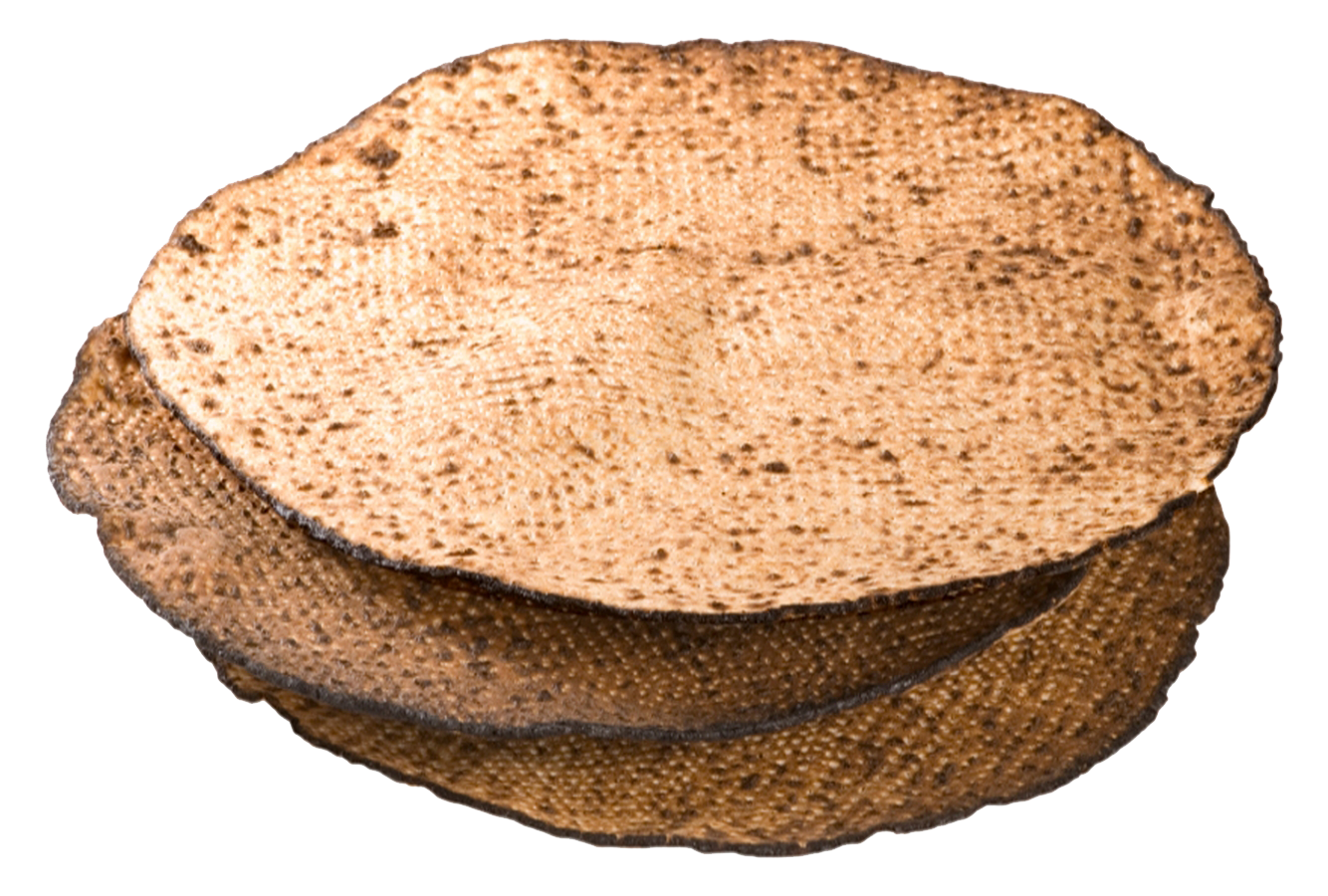| Source (Aramaic) | Translation (Ladino) | Transliteration (Romanized Ladino) | Translation (English) |
|---|---|---|---|
|
הָא לַחְמָא עַנְיָא דַּאֲכָֽלוּ אַבְהָתָנָֽא בְּאְַרעָא דְמִצְרָֽיִם. כָּל־דִּכְפִין יֵיתֵי וְיֵכֻל, כָּל־דִּצְרִיךְ יֵיתֵי וִיפְסַח. הָשַּׁתָּא הָכָא, לְשָׁנָה הַבָּאָה בְּאַרְעָא דְיִשְׂרָאֵל. הָשַּׁתָּא עַבְדֵי, לְשָׁנָה הַבָּאָה בְּנֵי וּבְנוֹת חוֹרִין׃
|
יסטאיי איל פאן דה לא אפֿריסייון קה קומירון מואסטרוס פאדרייס אן טיארה דה אגֿיפֿטו. טודו איל קי טיאניי אמברה בֿאנגה י קומאר, טודו איל קי טיאניי די מיניסטאר בֿאנגה י פאסקוויי. יסטאיי אניו אקי, א איל אניו איל בֿיאנין אן טיארה דה ישראל. יסטאיי אניו אקי סיארבֿוס, א איל אניו איל בֿיאנין יגֿוס איה יגֿאס פורוס.
|
Ieste el pan de la afrisiyon ke komiron muestros padres en tierra de Ayifto. Todo el ki tiene ambre venga i komer, todo el ki tiene di minister venga i paskwe. Ieste anyo aki, a el anyo el vienen en tierra de Israël. Ieste anyo aki siervos, a el anyo el vienen ijos e ijas foros.
|
This is the bread of oppression that our ancestors ate in the land of Egypt. Let all who are hungry come and eat; let all who are needy come celebrate Passover with us. This year we are here; next year in the land of Israel. This year we are slaves; next year free people.
|
This is Ha Laḥma Anya in Aramaic with translations in Ladino and English, from the Passover Seder Haggadah of Rabbi Emily Aviva Kapor-Mater, Haggadah Shir Geulah (2015, v.2.1/2016). She includes the following commentary,
The paragraph that begins the seder is in Aramaic, the everyday language of many Talmudic-era Jews. Here, it is also given in Ladino, the Romance language spoken by many Sefardi Jews. It is supposed to be understandable by everyone, because it is not a prayer, but an invitation. But are all who are hungry truly able to eat anywhere, let alone with us? How many of us would really invite a stranger into our house today? How can we fix the systemic problems that foster hunger, poverty, and oppression?
Source(s)


